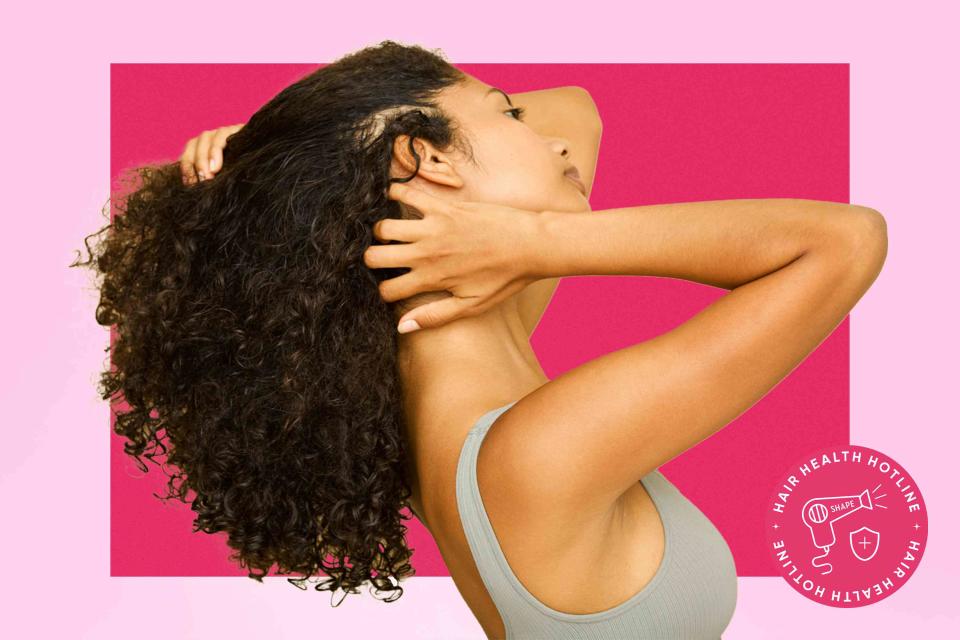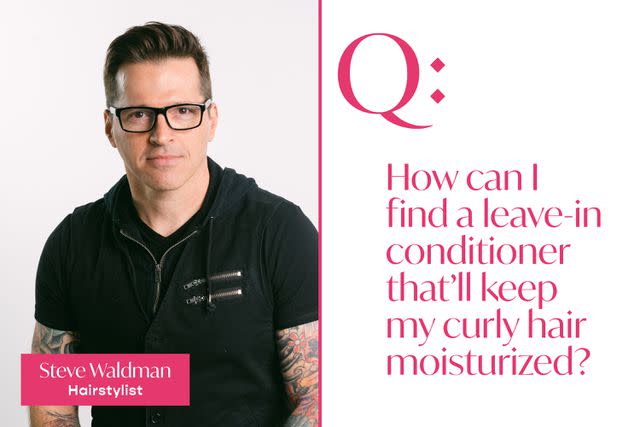How to Choose the Best Leave-In Conditioner for Curly Hair
Find out how leave-in conditioners differ from rinse-out conditioners, and what to look for when shopping for a product.

Plenty of people apply and immediately rinse off their conditioner on wash days without a second thought. But there's something to be said for letting a moisturizing product linger, especially if you have curly hair. Treated to a leave-in conditioner, your curls can become more defined and shiny and better protected from frizz.
If you're unclear on exactly how to take advantage of the products, you're in the right place. Here, Steve Waldman, artistic/technical director and product consultant at the Hair Cuttery family of brands, is sharing all the details on how to select and use a leave-in conditioner for curly hair.
Q: I have curly hair and have always just used a conditioner in the shower, but I noticed a lot of people recommend using a leave-in. What's the difference and should I put leave-in conditioner in my curly hair every day?
A: Leave-in conditioners are intended to impart longer-term moisturization compared to formulas that you immediately rinse away, according to Waldman. You can benefit from using leave-in products daily or less frequently, depending on your hair's susceptibility to dryness, he says.
:
All hair types can benefit from leave-in conditioning products, but they're especially helpful if you have curly hair, says Waldman. "Natural oils produced by your scalp take longer to spread down the length of curls [compared to straight hair], making curly/coily hair more susceptible to dryness and likely to crave moisture," he says.
While rinse-off conditioners moisturize hair, you don't leave them on your hair for long, which allows "beneficial ingredients go down the drain during rinsing," says Waldman. On the flip side, rinse-off conditioners also tend to be heavier than leave-on conditioners, meaning that the product that does remain on your hair can potentially make it feel weighed-down or greasy, he notes.
As with their rinse-out counterparts, leave-in conditioners can help smooth the cuticle layer (strands' outermost, protective layer which resembles overlapping scales), says Waldman. And a smoothed-out cuticle translates to increased manageability, curl definition, and shine, and less dryness and frizz, he says.

How to Use a Leave-In Conditioner for Curly Hair
Finding a leave-in conditioner that offers the right level of moisturization for your hair type may require some trial and error — or a recommendation from your friend with a similar hair type, says Waldman. You want to strike a balance between giving your hair enough moisture and not weighing it down. (As a general rule, the more thick, curly, and/or coarse, your hair is, the more moisture it will require.)
No matter your hair type, "avoid heavy ingredients that are greasy and waxy, for example, heavy oils such as mineral oil which may appear on a label as as petroleum, liquid petrolatum or liquid paraffin," suggests Waldman. "My favorite ingredients are water-based moisturizers [such as] aloe and light botanical oil blends — sunflower seed and jojoba oils work great."
Typically, people apply a leave-in conditioner post-shower after washing their hair with their regular shampoo and conditioner, though others opt to skip the rinse-off conditioner, relying solely on the leave-in, as Shape previously reported. The thought is that skipping in-shower conditioner can reduce your hair's exposure to water, since strands are most fragile and prone to breakage when wet.
:
Using leave-in products daily between washes can also be helpful, says Waldman. "A very effective strategy is to even out the hair's porosity [ability to absorb moisture] first with a light leave-in spray, then massage a leave-in conditioning cream down the lengths for definition and control," he says. "A spray or two throughout the day with your leave-in conditioner will bring your hair back to life." Consider concentrating the product on the mid-lengths and ends of your hair, which are further from your scalp and the natural oils it produces, and by extension more prone to dryness, he suggests.
Suffice it to say that while rinse-off conditioners have their place, you don't want to overlook their close relative, leave-in conditioners. Particularly if you have curly hair, leave-in conditioners can help you secure good hair days.

